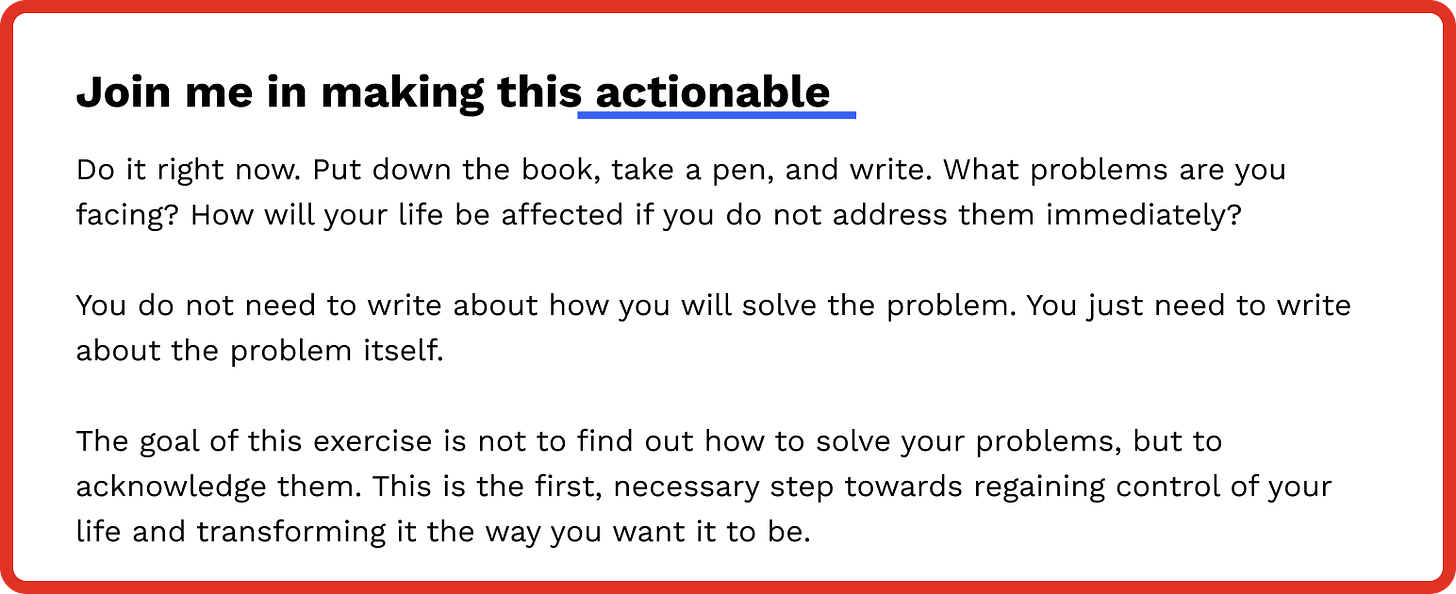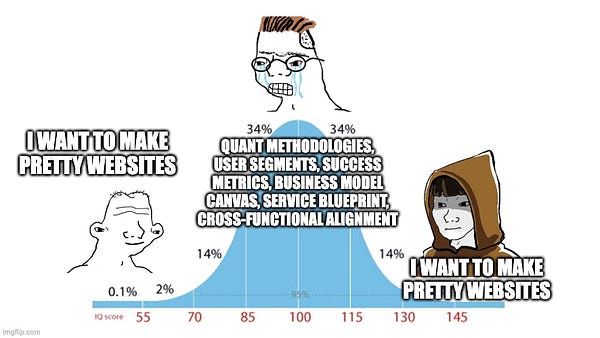Prioritising your growth - Part 1 [action plan included]
Edition 12th: Join me in this challenge and see the change for yourself. Will be doing this for next 4 weeks.
Hello awesome folks, I have been experimenting a bit with actionable practice on self-improvement advice. I came across a wonderful book by Luca dellana called 100 truths you’ll learn too late.
I’ll be sharing and practicing these guidelines here in my newsletter only on accountability's sake. Want to join me? you are most welcome :)
(feel free to reply to email if you have any feedback or suggestions)
Let’s start 🙌🏼
The reason many people are stuck in life is that they do not find the time, space, and energy to work on improving their condition. Their mental space is too busy with commitments and urgent situations to attend to. When they finally would have the time to think about themselves, their energy is depleted. They feel trapped in their condition. And often, they are.
In this chapter, Lucas will show you how to escape from this trap and how to succeed in working on yourself, for yourself.
Before that, let’s see another reason why some people cannot change their condition: sunk costs. They invested too much of themselves into a given identity and consequently lack the incentives to change it. They might be stuck with a given identity, with a given job, with a given social circle, with a given partner.
It is never too late to change. Cling on what you have exclusively if it allows you to fulfill your needs and dreams, not if it prevents you from doing that.
You do not have to wait for the next life to reincarnate into a better existence. You can be a different self whenever you act so; your life will adjust to it.
THE VERY IMPORTANT NEVER FEELS URGENT
The most common regret people have on their deathbed is to have spent their life chasing the urgent, neglecting to do what was actually important.
Family meals, drinks with friends, learning, and taking care of our own health: are all very important activities. And yet, often skipped attending meetings and other urgent errands.
Because the very important does not have a deadline, we have the impression that we can delay it for a few days. This is a huge mistake. Delaying something once opens the door to delaying it forever.
If you think about it, the very important never feels urgent. Instead, most things which feel urgent are important for someone else, not for you.
Why do people acknowledge the very important only on their deathbeds? Because, finally, facing death, the very important have a deadline. On the verge of leaving this world, the very important becomes urgent.
You do not have to wait for your life to be nearing its end. Make the very important urgent, now. Incorporate it within your schedule.
Treat your family time, friends time, learning time, meditation time, and workout time as if they were meetings with clients. Give them slots in your calendar and be inflexible about them. After all, your schedule is where your real priorities show up.
Soon, you will respect yourself more for having done what is important. That will be the engine that will give you the motivation and energy to persist.
PROBLEMS GROW THE SIZE NEEDED FOR YOU TO ACKNOWLEDGE THEM
Jack Kent tells us the story of a little boy, Billy, who, one day, in his bedroom, finds a dragon the size of a cat. Billy's mother ignores it, because there is no such thing as a dragon. Day after day, the dragon keeps growing, ignored. One day, it grows so much that, with its size, it wrecks Billy's house. Faced with a destroyed home, Billy's mother acknowledges the dragon. Finally, it starts shrinking. At the end of the story, Billy's mother asks: "Why did the dragon grow so big?" Billy answers: "I'm not sure, but I think it just wanted to be noticed."
Problems grow the size they need for them to be acknowledged.
There are many reasons for which problems appear. However, there is a single one for which they grow: if they are ignored.
Acknowledging a problem is the first step towards solving it and regaining mental peace. By acknowledging a problem and its consequences, the risks of letting it grow become clear and, therefore, urgent. You will be compelled to act immediately.
By ignoring a problem, instead, you deprive yourself of the very fuel you need to act.
The simple act of taking a pen and writing down the list of problems that are affecting you and the ways they are negatively impacting your life will often be all you need. If this is too much, choose a single problem and write about that one only. But write about it. Simply thinking about it will not be enough. Your unconscious mind needs material proof that you acknowledged the problem and its consequences.
Action plan
👋🏽 Reply over this email if you trying out this exercise with me
🐦 Tweets


Don’t think AI can replace the product or design people (yet) but being good at prompt engineering, will give you a lot of leverage.
📢 P.S. - I’ll be sharing some lessons on prompt engineering in the coming weeks, do put the newsletter in primary (if it’s still in promotion or updates) so that you don’t miss out
🤣🤣🤣
🤖 AI news of the week
1 // This AI tool generates app screens in a no-code tool (thanks
for sharing with me)2 // Here’s what happened in GPT-4 world in the past 2 days, some are incredible.

Have a creative week ahead,
Shivam ✌🏽







great read, thank you!